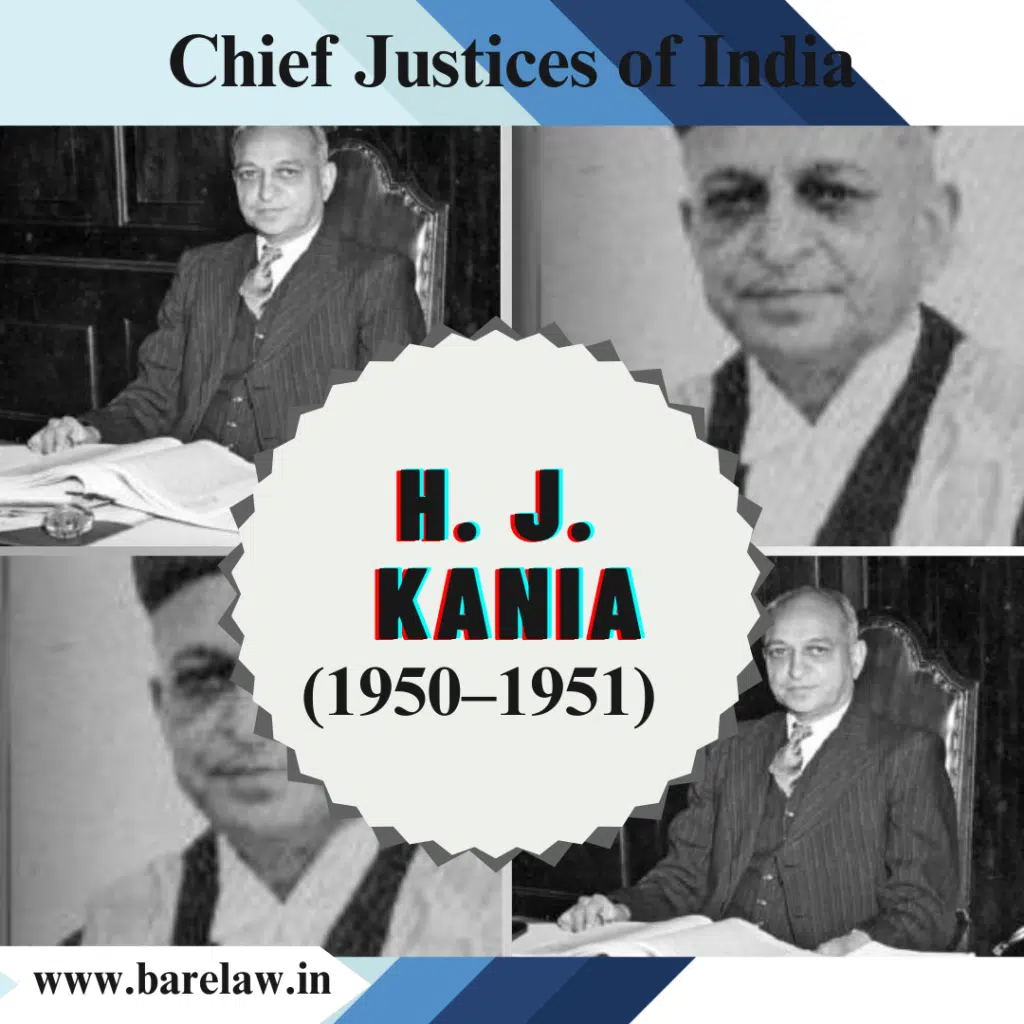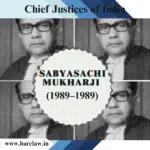
Table of Contents
H. J. Kania: India’s First Chief Justice’s Legacy
H. J. Kania: India’s First Chief Justice’s Legacy
In the annals of Indian legal history, one name stands out as the first among equals—the inaugural Chief Justice of India, Harilal Jekisundas Kania. Serving from 1950 to 1951, H. J. Kania played a pivotal role in shaping the foundation of the Indian judiciary and left an indelible mark on the country’s legal landscape. This article takes a deep dive into the life, contributions, and enduring legacy of Chief Justice H. J. Kania.
Early Life and Education
Born on November 3, 1890, in the city of Surat, in the then Bombay Presidency, H. J. Kania hailed from a modest family. His early education took place at Elphinstone College in Bombay (now Mumbai), followed by enrollment at Lincoln’s Inn in London, where he pursued his legal studies. He was called to the Bar in 1913, and his legal career began to take shape.
Professional Accomplishments
Kania’s legal acumen and dedication to the profession propelled him to the pinnacle of the legal fraternity in India. He had a distinguished career as a barrister and earned a reputation for his thoroughness and meticulous approach to cases. His expertise was recognized when he was appointed as a Judge of the Bombay High Court in 1933. His tenure as a High Court Judge marked the beginning of his judicial legacy.
The Role in India’s Constitutional Journey
The pivotal moment in Kania’s career came with India’s struggle for independence and the subsequent drafting of the Indian Constitution. He was appointed as the first Chief Justice of India on November 6, 1950, following the adoption of the Indian Constitution, which came into effect on January 26, 1950. As the chief guardian of India’s nascent legal framework, Chief Justice Kania faced the immense responsibility of laying the foundation for the country’s judiciary.
Contributions as Chief Justice
- Judicial Leadership: Chief Justice Kania’s leadership was instrumental in establishing the Supreme Court of India as the highest court of the land. His steady guidance ensured that the court functioned effectively and efficiently during its formative years.
- Legal Interpretation: His tenure saw the Supreme Court delving into complex constitutional issues, interpreting the newly minted Constitution. The judgments delivered during his tenure set important precedents for future legal interpretations in India.
- Defining Judicial Independence: Chief Justice Kania worked relentlessly to uphold the principle of judicial independence. His emphasis on this cornerstone of democracy laid the groundwork for the judiciary’s autonomy in India.
- Commitment to Justice: Throughout his career, Kania demonstrated an unwavering commitment to justice, often putting the welfare of the nation above personal or political considerations. His impartiality and dedication were widely acknowledged.
Challenges Faced
Chief Justice Kania’s term was not without its share of challenges. The post-independence era was marked by political and social upheaval, and the judiciary was often called upon to resolve contentious issues. Kania navigated these challenges with wisdom and integrity, earning the respect of his peers and the legal fraternity.
Legacy and Influence
The legacy of H. J. Kania endures in several ways:
- Founding Principles: His commitment to the rule of law and the Constitution laid the groundwork for the Indian judiciary’s enduring commitment to these principles.
- Judicial Independence: Kania’s steadfast defense of judicial independence set a standard for future generations of judges to emulate.
- Precedents: Many of the judgments delivered during his tenure continue to shape Indian jurisprudence, serving as precedents for subsequent cases.
- Ethical Standards: Kania’s impeccable ethical standards and dedication to justice remain a guiding light for legal professionals in India.
Conclusion
H. J. Kania’s journey from a humble background to becoming India’s first Chief Justice is a testament to the power of dedication, integrity, and the pursuit of justice. His contributions to the Indian judiciary during its formative years continue to be celebrated, and his legacy remains an inspiration for judges, lawyers, and legal scholars in India and beyond. As the pioneer of the Indian Supreme Court, Chief Justice Kania’s name will forever be etched in the annals of Indian legal history, a symbol of unwavering commitment to justice and the rule of law.



